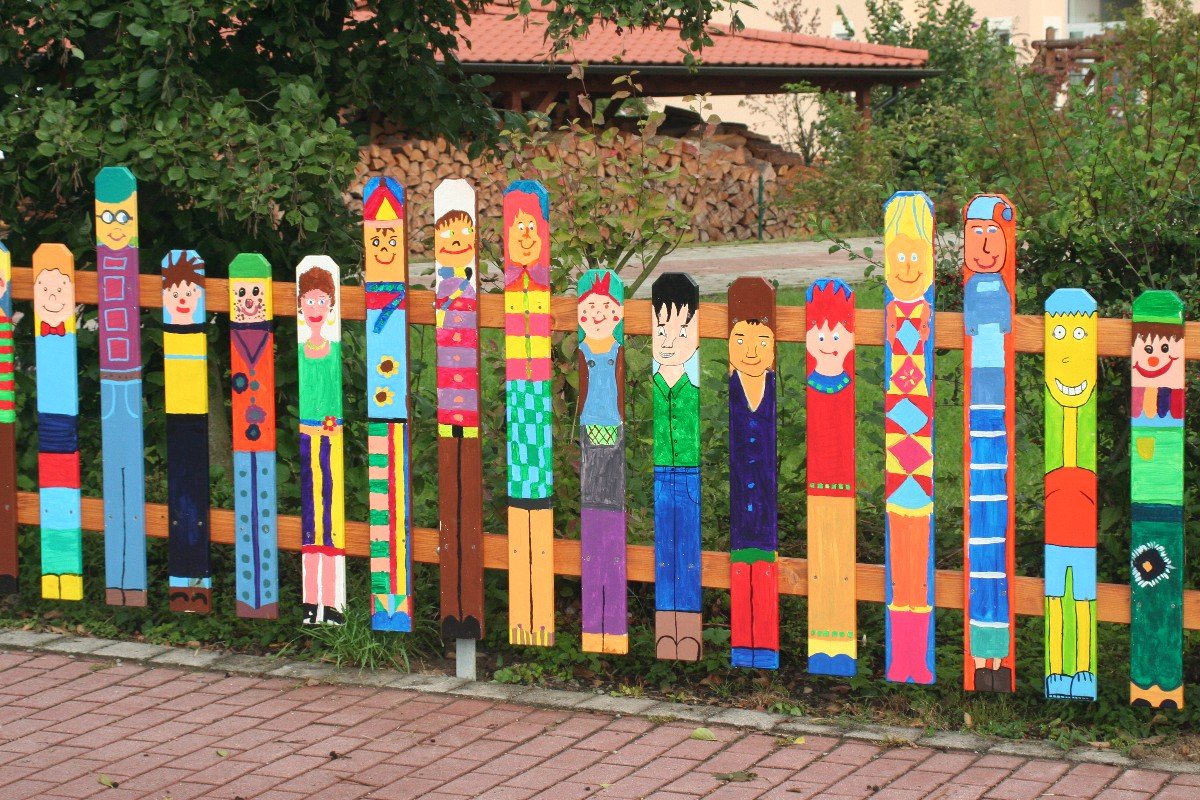#3614. Playful Facade: Anthropomorphic Fence as an Element of Architectural Landscape
The presented image showcases a creative design approach to the fencing around a residential area. What we see is not a classical architectural facade in the traditional sense, but rather a landscaping element that has been transformed into a vibrant artistic object.
The fence consists of vertical wooden planks, each painted to resemble stylized human figures using bright colors and simple geometric shapes. These colorful "characters" create a lively rhythmic sequence that contrasts with the traditional monotony of fencing structures. Each element is unique in its color scheme and design, creating a dynamic, playful composition.
In the background, a residential building with a characteristic terracotta tiled roof and stone masonry is visible, indicating a Mediterranean or Southern European architectural style of the main building. It's interesting to note the contrast between the folk-like, almost primitivist style of the fence decoration and the more traditional architecture of the house.
This object represents an example of "participatory architecture," where the boundary between the utilitarian function of a fence and public art is blurred, creating a friendly and playful space, likely for a children's institution or family recreation area.
